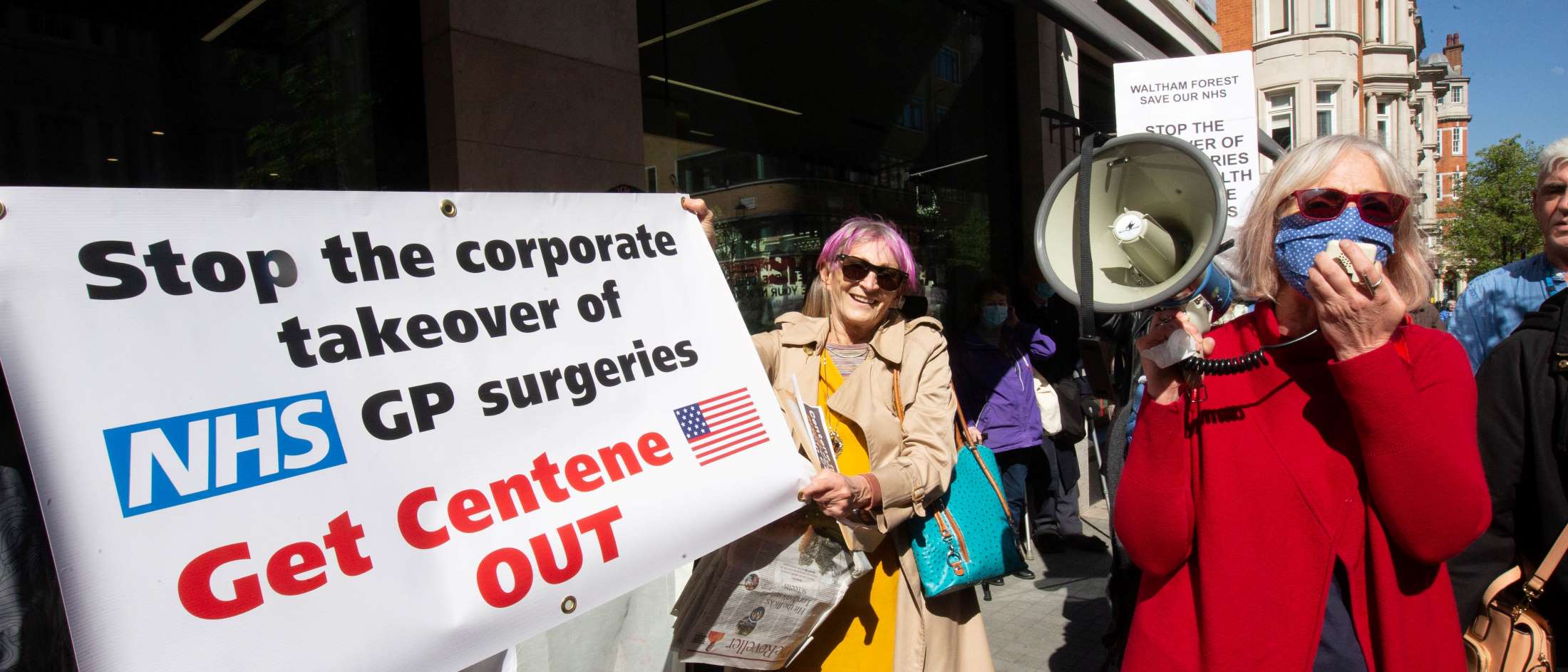CETA – a TTIP prequel
By now, most of you will have heard of the Transatlantic Trade and Investment Partnership (TTIP), the US-EU trade deal that threatens to bring crucial parts of the NHS under the control of profiteering US health firms. As details of the deal have spread, public outrage has mounted.
But there’s another deal in the works, one which has largely flown under the radar and been negotiated behind closed doors. This Canadian-EU trade deal, known as CETA, is on the verge of being approved. If it goes through, says TUC international head Owen Tudor, then “most of the worries people have about TTIP will have already come to pass.”
Conservative governments on both sides of the Atlantic have hailed the agreement, lauding the creation of jobs and new trade opportunities. But what they won’t explain is the realities most of us will have to live with if the deal goes through: from threats to public services like the NHS to eroded worker rights to a world in which no institution is safe from the clutches of privatisation.
ISDS: Suing governments in secret courts
When we think of lawsuits, we assume that they’re court battles between private companies or individuals. But both CETA and TTIP contain a provision that would make it possible for companies to sue governments in secret tribunals. Known as Investor-State Dispute Settlement (ISDS), it is a mechanism that would grant a corporation the power to go after the state if one of its public services interfered with the corporation’s profit-grabbing.
“With ISDS, we can imagine a situation in a country like the UK, where there are both private and public health services, in which a private provider can sue the government for maintaining a public service that gave it a so-called â€unfair advantage’ in the market,” said Mark Rowlinson of the United Steelworkers union in Canada.
Proponents of trade deals like TTIP and CETA, including Prime Minister David Cameron, who dismissed the notion that the NHS is under threat, say that the scenario Rowlinson presents is merely scaremongering.
But Rowlinson contends the dangers are very real. After all, he says, it’s happened before.
NAFTA, a free trade agreement between Canada, the United States and Mexico, also has ISDS provisions. Among the many examples Rowlinson gives of corporations bringing legal action against sovereign states through NAFTA, one was the Canadian postal service.
In 2000, the privately owned American carrier service, UPS, brought a lawsuit against the Canadian government, alleging that the delivery of public postal services represented unfair competition for private companies providing similar services. UPS demanded $160m (ÂŁ100m) in damages.
Race to the bottom
Unite assistant general secretary Tony Burke explained that, beyond dismantling public services, ISDS provisions in agreements like CETA and TTIP can destroy hard-won labour protections.
“It’s possible that a country could raise its national minimum wage, and an employer could turn round and say, â€This is affecting my profits,’ Burke noted. “And because these ISDS tribunals are held in secret, workers wouldn’t know about any of it, and employers would have all the power in that situation.”
Rowlinson explained that among NAFTA signatories, Canada had the strongest labour protections, followed by the US and Mexico. After NAFTA went into effect, he says, it slowly but surely weakened Canada’s greater worker protections.
Burke agrees, noting, “The fear is we’d have a race to the bottom. France, Germany, and some of the Scandinavian countries have some of the strongest worker laws in the world. Multinational companies could easily put pressure on those countries’ governments to weaken them.”
Rowlinson dismisses the labour protection provisions in the CETA agreement, calling them “window-dressing.”
“Agreements like CETA always pay lip service to labour and environmental protections, but there’s no mechanism for enforcement,” Rowlinson said. “NAFTA had the same provisions and look what happened.”
Only the beginning
Although negotiations on CETA ended last week, indicating that the agreement is set to go through, all member countries must first sign off on it. Germany and many other EU countries have taken issue with the ISDS provisions. But even if ISDS is left out, both Burke and Rowlinson say, the agreement is still fundamentally dangerous for the future of workers, public services, and the environment.
“Ultimately these trade agreements are about investor rights,” Rowlinson added. “Over time, they result in greater economic integration, which translates into regulatory integration. And we’ve seen time and again, that they always create a race to the bottom: looser regulations, less public control.”
Unite general secretary Len McCluskey warned that CETA was only the beginning.
“The Tory government in the UK is hell-bent on privatising our National Health Service,” he said. “If that happens, CETA locks in the privatisation: If a Labour government reverses it, then the private companies can sue the government for damages. We would no longer have democratic control over our economy or our public policies.”
For more updates on CETA’s status, which is yet to be signed, see Burke’s blog Power in a Union.
For an in-depth analysis of what CETA would mean if turned into a reality, see Making Sense of CETA, a Canadian think tank’s report.
 Like
Like Follow
Follow


